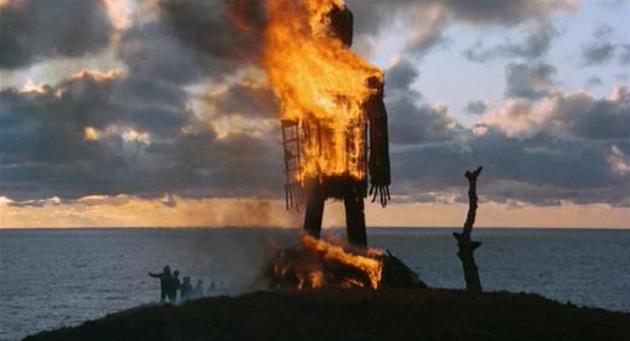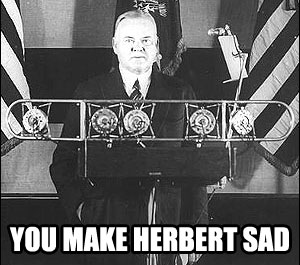 “‘I was born in 1941, the year they bombed Pearl Harbor. I’ve been living in darkness ever since,’ Dylan said to introduce the song, or as a goodbye, or, as he hadn’t spoken before, as a hello. ‘But it looks like things are going to change now.’ At the end of the stage he stepped out from behind his electric organ and did a jig.
“‘I was born in 1941, the year they bombed Pearl Harbor. I’ve been living in darkness ever since,’ Dylan said to introduce the song, or as a goodbye, or, as he hadn’t spoken before, as a hello. ‘But it looks like things are going to change now.’ At the end of the stage he stepped out from behind his electric organ and did a jig.“
Thus was the freewheelin’ Bob Dylan’s happy reaction to Obama’s election Tuesday night. (As you may remember, he publicly backed the senator in June.) For many others, including yours truly, the feeling of the evening might best be summed up by one of Dylan’s esteemed contemporaries, Leonard Cohen: “Hallelujah, Hallelujah, Hallelujah, Halleloooooojah!“
For the first time since 1994, we have a Democratic president and a safely Democratic Congress. For the first time since 1964, we have a Democratic president entering office with a commanding mandate from the people. For the first time since…well, ever, we’ve reaffirmed our founding principles by choosing an African-American to lead us into the future.
I don’t want to overplay the “first black president” thing, because that’s not at all why we chose Sen. Obama. Still it must be said: With this election, we have shown the world — and ourselves — anew that the American ideal isn’t just a convenient myth, but a vision of the good that many of us still aspire to create every day. In the words of Cornel West, “To understand your country, you must love it. To love it, you must, in a sense, accept it. To accept it as how it is, however is to betray it. To accept your country without betraying it, you must love it for that in it which shows what it might become. America – this monument to the genius of ordinary men and women, this place where hope becomes capacity, this long, halting turn of the no into the yes, needs citizens who love it enough to reimagine and remake it.” And so we have, in a way the founders of our American experiment 221 years ago could barely have imagined.
Meanwhile, even with crooks like Ted Stevens and Norm Coleman still floating for the moment, our old friends the Republicans are now not only in full rout, but appear to be set to tear each other’s throats out in assigning blame for their repudiation at the polls. (Expect several further symposia of conservative hand-wringing, and a lot more intraparty shivving, along the lines of “Palin thinks Africa is a country,” in the weeks to come.) This gang will regroup — they always do — but for now the GOP has enough problems of their own to keep them busy. And, whatever ever they manage to accomplish as the loyal(?) opposition, it seems a safe bet that the Conservative Era that began with the defeat of Barry Goldwater in 1964 has now officially coughed up its last in 2008, with the defeat of fellow Arizonan John McCain.
By the way, also joining the Republicans on the road to oblivion Tuesday night, alas, was my old laptop, a victim of post-return celebratory spillage. (Jamesons: Good for Jimmy McNulty and jubliant Dems, Bad for computer hardware in and around the television area.) Normally, inadvertently frying my growing-ancient-but-generally-reliable PC would’ve completely ruined my day. As it was, I took the news about like Baxter eating the whole wheel of cheese: “How’d you do that? Heck, I’m not even mad; that’s amazing.” (And, fortunately, the hard drive, and the dissertoral files therein, were salvageable regardless.)

One much more depressing skeleton at the feast Tuesday night, about which Ted at Gideonse Bible, Chris at DYFL, and others have written eloquently: the passage of the idiotic Proposition 8 in California, which seemingly won with quite a bit of help from first-time Obama voters. It’s irredeemably sad not only that a day that saw so much progress was marred by Prop 8 and its like around the country, but that so many of the voters who helped strike a fatal blow against enduring racial prejudice at the national level seemingly had no qualms about encoding anti-gay bigotry into the California constitution.
Perhaps I’m dense, but I fail to understand how the institution of marriage could somehow be threatened by the state recognizing the unions of same-sex couples, particularly in a day and age when so many straight folk (myself included) have already had marriages that failed. (As my old boss used to say of the thrice-married Bob Barr back when he supported the Defense of Marriage Act: “Which marriage is he defending?”) By the way, particularly galling on the Prop 8 front, I think, is the strong imposition of the Mormon church into the battle on the side of the anti-gay zealots. One would think, of all people, the Mormons might have some sense of the damage that can be wrought by the state involving itself in stringent definitions of marriage. But, no, apparently what was good for two ganders in the eyes of the Mormons isn’t good for the goose. For shame.
Still, the Prop 8 debacle notwithstanding (I have every faith that within a decade, that law will seem as knee-jerk, narrow-minded, and embarrassing as it in fact is), Tuesday was otherwise a great night for America. What it now befalls us to remember is that, while we should savor them while we can, the path of progress before us will likely offer few such moments of jubilation in the months and years ahead. When it comes to change, it really is “uphill all the way.”
Given the economic and diplomatic travails already before President-elect Obama, he’ll have his work cut out for him from jump street. And those out there old enough to remember President Clinton’s first days in office, and how quickly things seemed to go south then (the sanity-restoring ’93 budget bill notwithstanding) will know that a Dem president and Dem Congress is no guarantee of progressive legislation in the offing. We won’t see the change we want — and voted for — without maintaining steady and unyielding pressure on all the machinery of government in the months and years to come. Now is not the time to sit back and let our new president try to do all the heavy lifting, but to stay involved as citizens and keep the progressive ball moving forward. (And, hey, keeping one’s head in the game may help to mitigate those postpartum existential crises The Onion warned us about.)
 In an election held eighty years ago (i.e. in the living memory of one Ann Nixon Cooper), Herbert Hoover, the longstanding Secretary of Commerce widely revered as “the Great Engineer” and “the Great Humanitarian,” decisively defeated Al Smith, the Catholic Governor of New York. “Given a chance to go forward with the policies of the last eight years,” Hoover had promised in his nomination speech, “we shall soon with the help of God be in sight of the day when poverty will be banished from this nation.” And, while he obviously had his detractors, many across the country viewed Hoover as a miracle-worker who could singlehandedly steer the country to these new great heights. “We were in a mood for magic,” journalist Anne O’Hare McCormick wrote of the Hoover inauguration. “We summoned a great engineer to solve our problems for us; now we sat back comfortably and confidently to watch the problems being solved.“
In an election held eighty years ago (i.e. in the living memory of one Ann Nixon Cooper), Herbert Hoover, the longstanding Secretary of Commerce widely revered as “the Great Engineer” and “the Great Humanitarian,” decisively defeated Al Smith, the Catholic Governor of New York. “Given a chance to go forward with the policies of the last eight years,” Hoover had promised in his nomination speech, “we shall soon with the help of God be in sight of the day when poverty will be banished from this nation.” And, while he obviously had his detractors, many across the country viewed Hoover as a miracle-worker who could singlehandedly steer the country to these new great heights. “We were in a mood for magic,” journalist Anne O’Hare McCormick wrote of the Hoover inauguration. “We summoned a great engineer to solve our problems for us; now we sat back comfortably and confidently to watch the problems being solved.“
For his part, Hoover was less sanguine about his prospects. “They have a conviction that I am some sort of superman, he fretted. “If some unprecedented calamity should come upon the nation…I would be sacrificed to the unreasoning disappointment of a people who expected too much.“
Who among us think Hoover a superman now? History doesn’t stop with a war or an election or the collapse of a governing ideology, be it Communism or Conservatism. It grinds inexorably on, always uncertain, always equal parts danger and opportunity, and all too often deeply laced with irony — Time and time again in our American story, nothing succeeds like abject failure, and nothing fails like a great success. So let’s not rest on our laurels by any means: The election of 2008 was a campaign hard-fought and hard-won, but the battle continues, and in many ways the real work before us is only now just beginning.
Let us look to navigate the turbulent waters ahead with a deep and abiding faith in our new captain, but also with our own eyes to the sea.
(Presidents pic via Hal at Blivet and Patrick at Supercres.)





 In an election held eighty years ago (i.e. in
In an election held eighty years ago (i.e. in